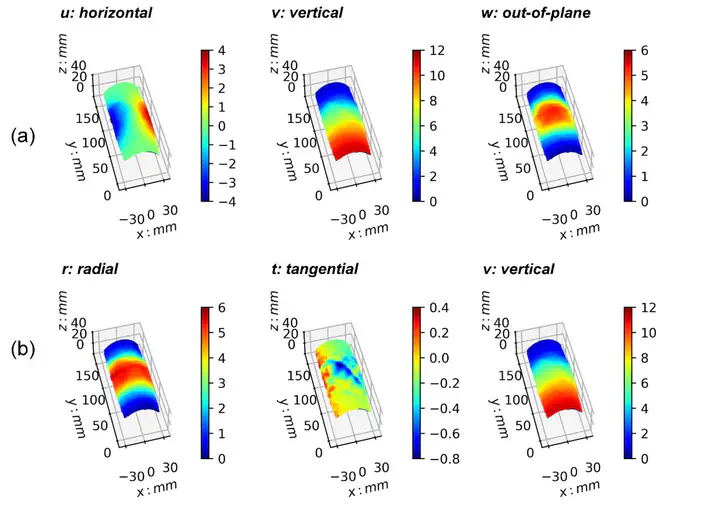Spatio-Temporal Statistical Characterization of Boundary Kinematic Phenomena of Triaxial Sand Specimens

Abstract
This paper follows up on a reference paper that inspired MDPI’s Topic “Stochastic Geomechanics From Experimentation to Forward Modeling”, where global and local deformation effects on sand specimens are fully described from high resolution boundary displacement fields, and supported by its experimental database, which is open to the scientific community for further study. This paper introduces the use of spatio-temporal statistics from a subset of such an experimental database to characterize the specimens’ spatio-temporal displacement fields, populated by repeating a set of triaxial compression tests on drained, dry, vacuum-consolidated sand specimens, tested under similar experimentally controlled conditions. A three-dimensional digital image correlation (3D-DIC) technique was used to measure the specimens’ boundary displacement fields throughout the course of shearing under axial compression. Spatio-temporal first- and second-order statistics were computed for different data dimensionality conditions (0D, 0D-T, 1D-T, 3D-T) to identify and characterize the dominant failure mechanisms across different testing specimens. This allowed us to quantify localization phenomena’s spatio-temporal uncertainty. Results show that the uncertainty captured along the deformation process across different dimensionality conditions can be directly associated with different failure mechanisms, including localization patterns, such as the onset and evolution of shear, compression, and expansion bands. These spatio-temporal observations show the dependencies between locally distinctive displacement regions over a specimen’s surface, and across different times during a specimen’s shearing process. Results of this work provide boundary spatio-temporal statistics of experimental evidence in sands, which sets the basis for the development of research on the numerical simulation of sand’s constitutive behavior. Moreover, it allows to add a new understanding on the effect of uncertainty on the mechanistic interpretation of sands’ kinematic phenomena.